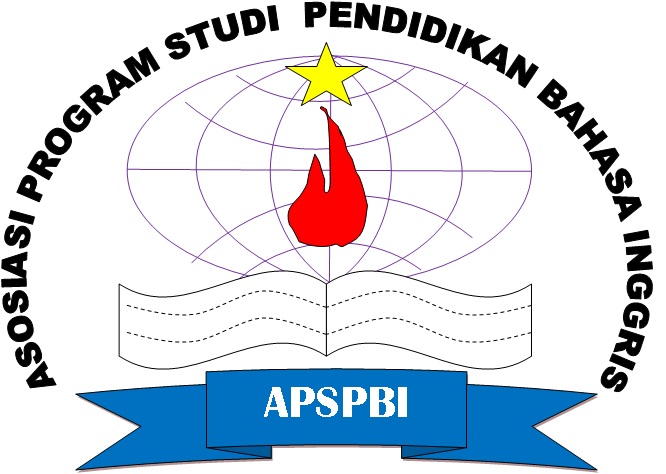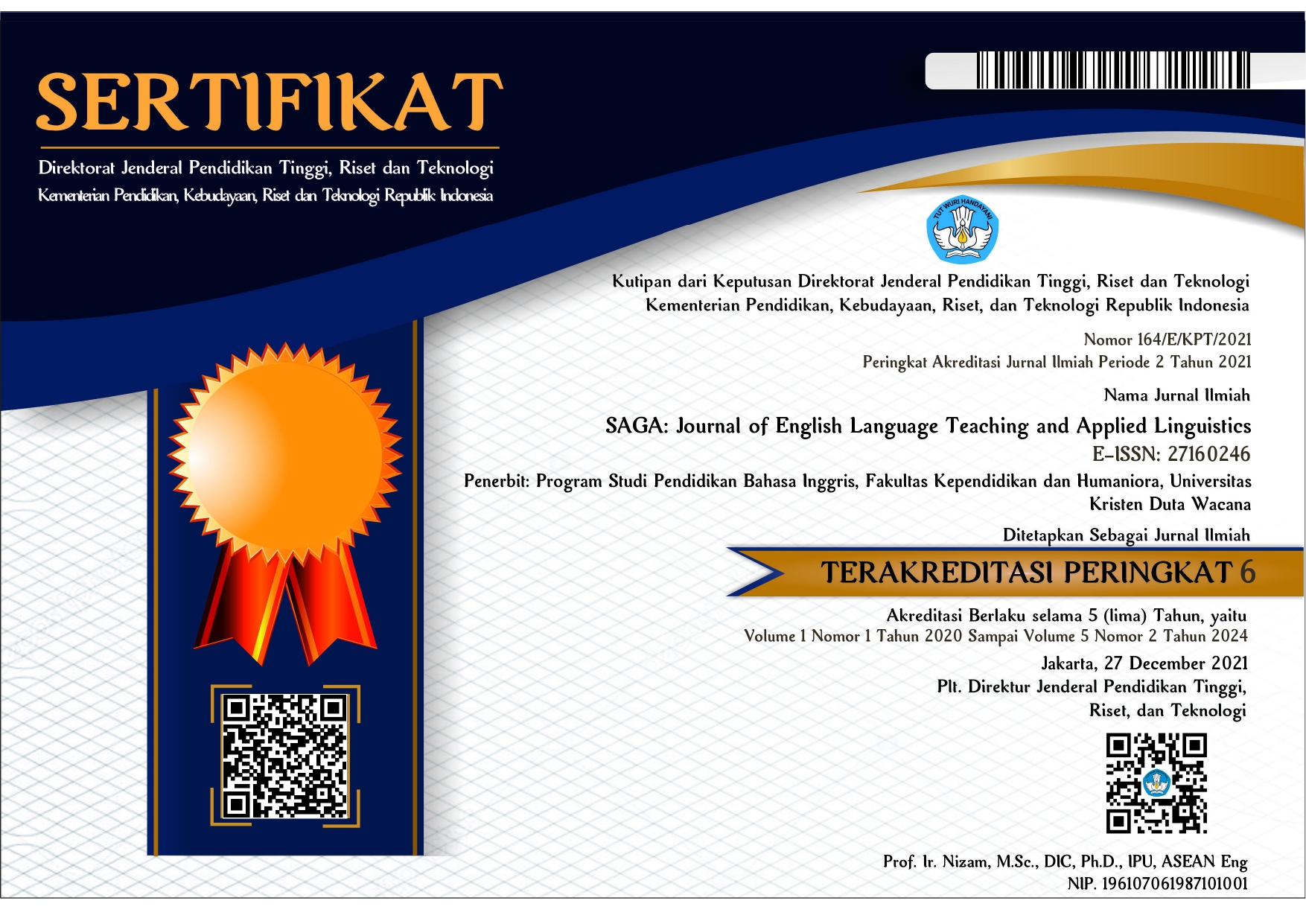STUDENTS’ PERCEPTION TOWARDS THE IMPLEMENTATION OF ONLINE FORMATIVE ASSESSMENT IN ENGLISH LEARNING
DOI:
https://doi.org/10.21460/saga.2021.22.83Keywords:
Perception, Formative Assessment, Online LearningAbstract
The Indonesian government policy due to the emergence of the COVID-19 pandemic requires all students and teachers to carry out the learning process online. Starting from various learning strategies to the assessment process must be carried out by applying an online system. In line with this policy, this study was conducted with the aim of investigating the implementation of one type of assessment, namely formative assessment in online learning situations. This study focuses on students’ perceptions of the implementation of formative assessment in English learning. By using a mixed-method research design, data collection was carried out through survey and interview methods. The samples of this study were 215 students of a Junior High School in Bali, Indonesia and involved 8 students from the entire sample as participants in the interview. The survey results showed that students had a positive perception of the implementation of online formative assessment. This is also supported by information obtained in the interview process, in which students feel that this type of online formative assessment is comfortable to carry out, especially because of the use of simple and easy tools. In addition, students also feel that there are things that make online formative assessment less effective, such as the unavailability of feedback which also causes students to be less interested in this type of assessment. Through this study, it is hoped that it can provide various information for students and teachers for the purpose of improving the quality of the implementation of formative assessment in English learning.
References
Amua-sekyi, E. T. (2016). Assessment, student learning and classroom practice: A review. Journal of Education and Practice, 7(21), 1–6
Ary, D., Jacobs, L. C., & Sorensen, C. (2010). Introduction to Research in Education (8th ed.). CENGAGE Learning
Bayat, A., Jamshidipour, A., & Hashemi, M. (2017). The beneficial impacts of applying formative assessment on Iranian University students’ anxiety reduction and listening efficacy. International Journal of Languages’ Education and Teaching, 5(2), 1–11. https://doi.org/10.18298/ijlet.1740
Black, P., & Wiliam, D. (1998). Inside the black box: Raising standards through classroom assessment. Granada Learning.
Creswell, J. W. (2009). Research design: Qualitative, quantitative, and mixed method approach (3rd ed.). SAGE Publications.
Dixson, D. D., & Worrell, F. C. (2017). Formative and summative assessment in the Classroom. Theory into Practice, 55(2), 153–159. https://doi.org/10.1080/00405841.2016.1148989
Dunn, K. E., & Mulvenon, S. W. (2009). A critical review of research on formative assessments: The limited scientific evidence of the impact of formative assessments in education. Practical Assessment, Research, and Evaluation, 14(7), 1–11. https://doi.org/10.7275/jg4h-rb87
Elmahdi, I., Al-Hattami, A., & Fawzi, H. (2018). Using technology for formative assessment to improve students’ learning. Turkish Online Journal of Educational Technology, 17(2), 182–188.
Jacob, S. M., & Issac, B. (2005). Formative assessment and its e-learning implementation. International Conference for Education.
Kerr, S., Muller, D., Mckinon, W., & Mcinerney, P. (2016). An online formative assessment tool to prepare students for summative assessment in physiology. African Journal of Health Profession Education, 8(1), 72–76. https://doi.org/10.7196/AJHPE.2016.v8i1.581
Marden, N. Y., Ulman, L. G., Wilson, F. S., & Velan, G. M. (2013). Online feedback assessments in physiology: Effects on students’ learning experiences and outcomes. Adv Physiol EDUC, 37, 192–200. https://doi.org/10.1152/advan.00092.2012
Miles, M. B., & Huberman, A. M. (1994). Qualitative data analysis (2nd ed). SAGE Publications.
Shaw, L., MacIsaac, J., & Singleton-Jackson, J. (2019). The efficacy of an online cognitive assessment tool for enhancing and improving student academic outcomes. Online Learning Journal, 23(2), 124–144. https://doi.org/10.24059/olj.v23i2.149
Sprague, A. (2016). Improving the ESL graduate writing classroom using Socrative: (Re)Considering exit ticket. TESOL Journal, 7(4), 989–998. https://doi.org/10.1002/tesj.295
Sugiyono. (2015). Metode Penelitian Pendidikan. Alfabeta.
Voinea, L. (2018). Formative assessment as assessment for learning development. Journal of Pedagogy, 1, 7–23. https://doi.org/doi.org/10.26755/RevPed/2018.1/7
Widiastuti, I. A. M. S. W., Mukminatien, N., Prayogo, J. A., & Irawati, E. (2020). Dissonances between teachers’ beliefs and practices of formative assessment in EFL classes. International Journal of Instruction, 13(1), 71–84. https://doi.org/10.29333/iji.2020.1315a
Yulia, A., Husin, N. A., & Anuar, F. I. (2019). Channeling assessments in English language learning via interactive online platforms. Studies in English Language and Education, 6(2), 228–238.
Zakaria, A., & Zainualdin, A. (2014). Pedagogical factors influencing online assessments use: A case study with Business Research Method subject at a Malaysian Private University. Global Journal of Interdisciplinary Social Sciences, 3(4), 91–98.
















